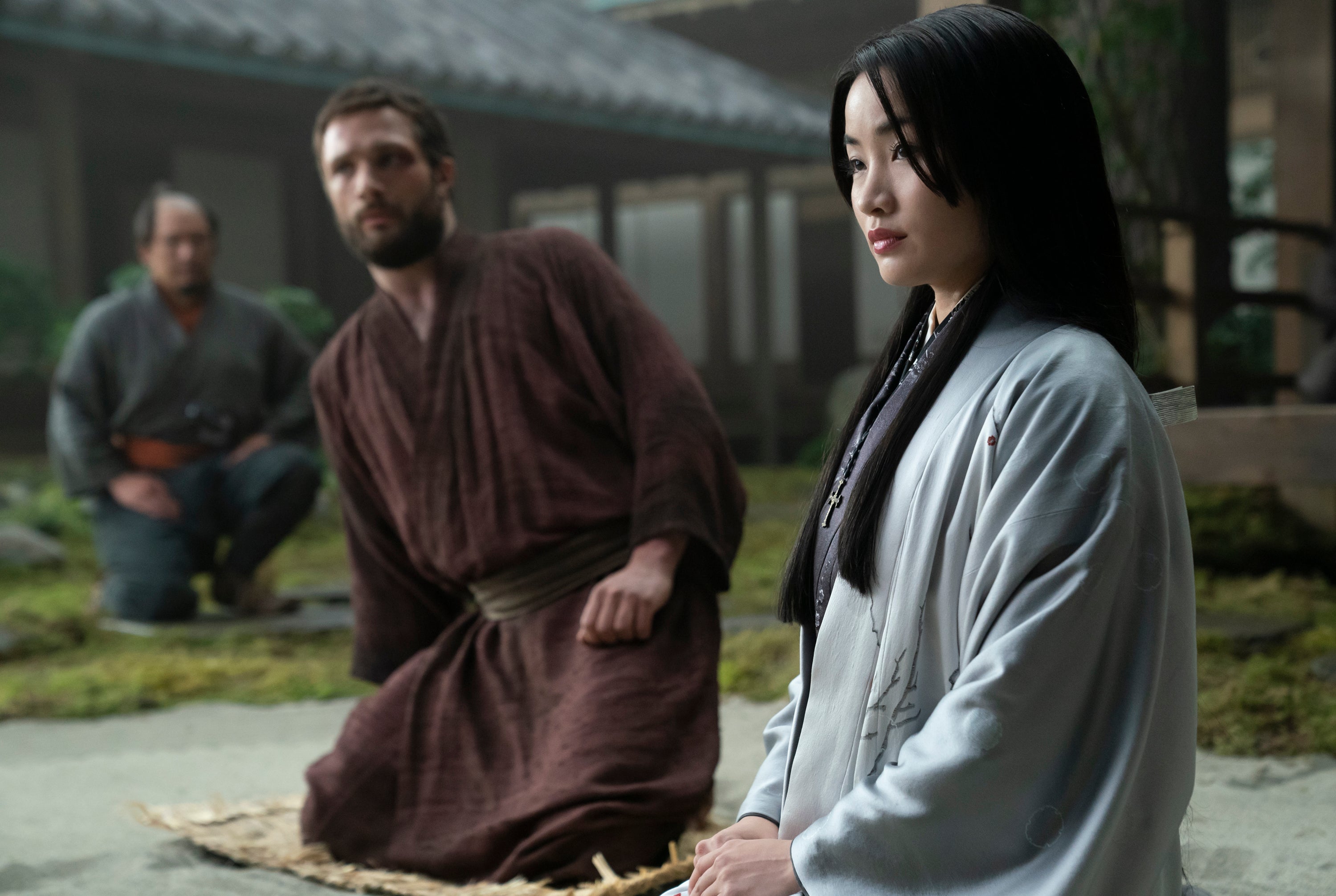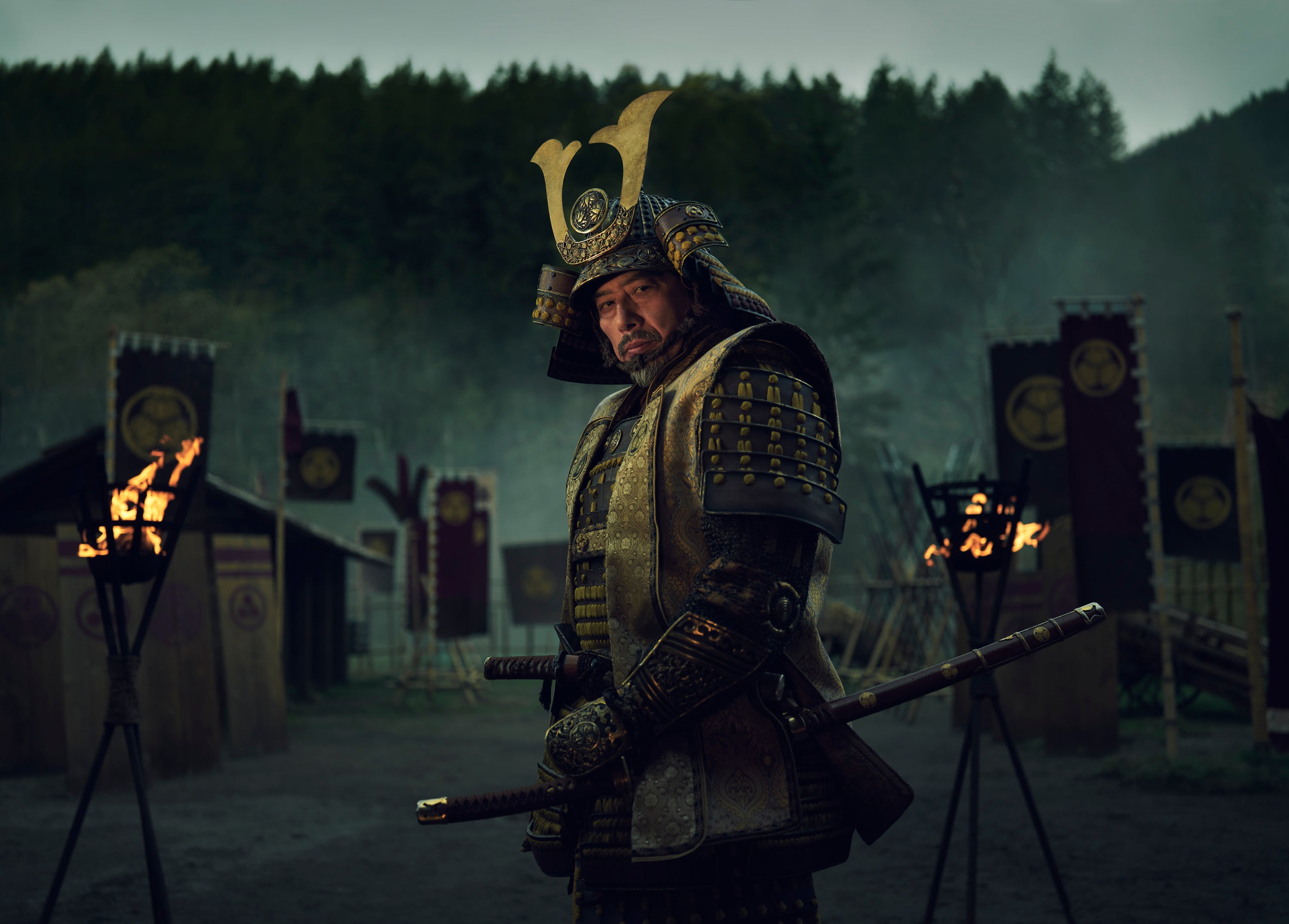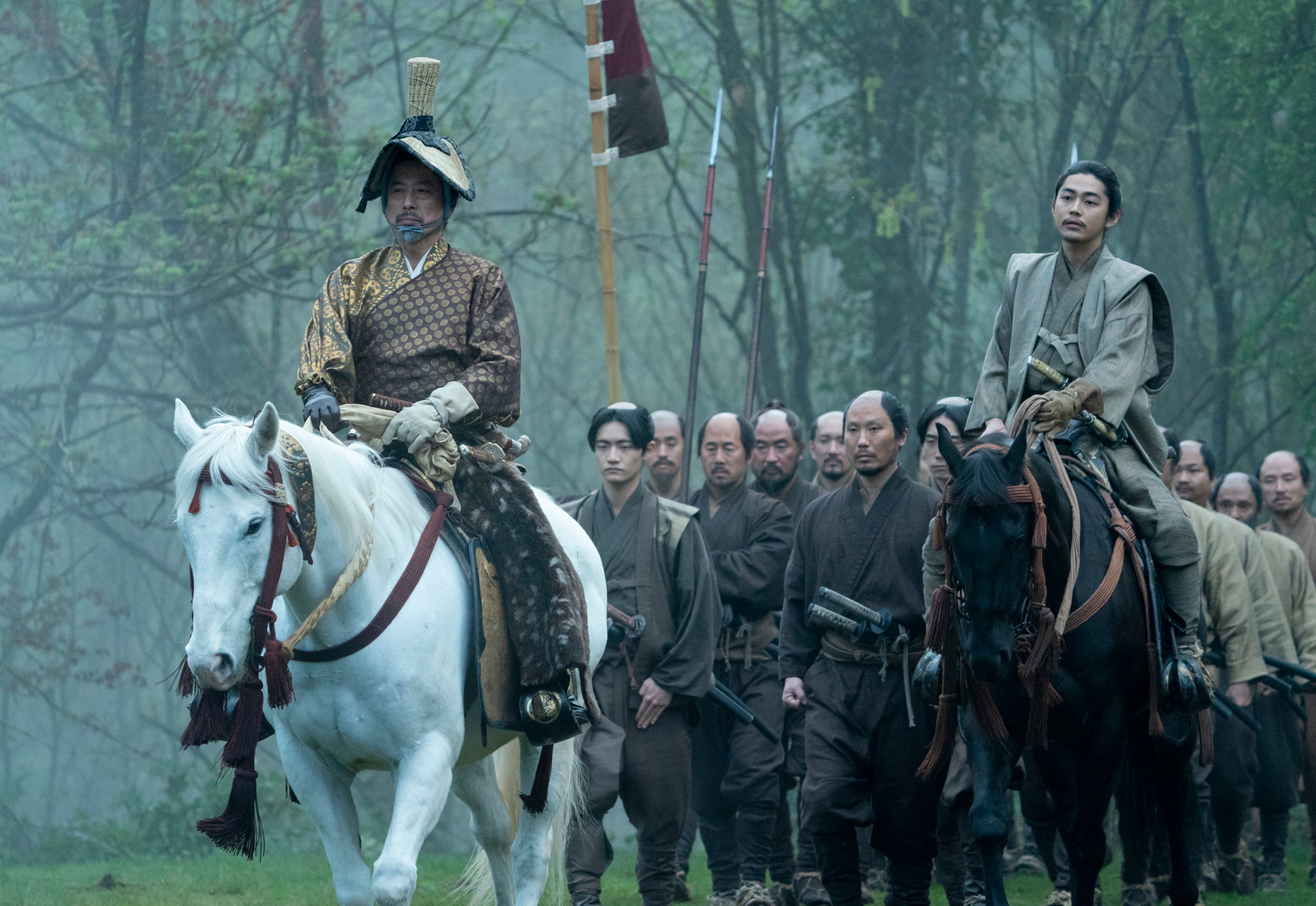
Your support helps us to tell the story
In my reporting on women's reproductive rights, I've witnessed the critical role that independent journalism plays in protecting freedoms and informing the public.
Your support allows us to keep these vital issues in the spotlight. Without your help, we wouldn't be able to fight for truth and justice.
Every contribution ensures that we can continue to report on the stories that impact lives

Kelly Rissman
US News Reporter
When Shōgun arrived on our screens earlier this year, it did so weighted with expectations as heavy as a samurai in full armour. A sprawling historical drama set in feudal Japan’s tumultuous Sengoku period, the series’ epic scope and promise of adventure have drawn comparisons to HBO’s mammoth hit Game of Thrones. Months later, it is now the most-nominated show at the 2024 Emmys, with 25 nods.
The story centres on the coming together of two ambitious men from very different worlds, along with a mysterious female samurai. John Blackthorne (Cosmo Jarvis) is an English sailor who ends up shipwrecked in Japan. Lord Toranaga (Hiroyuki Sanada) is a shrewd and powerful daimyo – a feudal lord subordinate to the ruling shogun – who seeks advantage over his political rivals. Lady Mariko (Anna Sawai) is an enigmatic and skilled fighter with dishonourable family ties.
Shōgun comes with impeccable pedigree. The new FX/Disney+ series, which was created by Top Gun: Maverick writer Justin Marks and Rachel Kondo, is adapted from James Clavell’s novel of the same name – a runaway bestseller when it was published in 1975. The book was then adapted into a hit 1980s miniseries starring Richard Chamberlain, Toshiro Mifune and Yoko Shimada. While the story is fictional, many of the characters are based on real-life figures drawn from Japanese history.
Indeed, Clavell once revealed that his hugely successful novel had been inspired by a single line he read in his daughter’s textbook: “In 1600, an Englishman went to Japan and became a samurai.” Here’s the true story of how a sailor named William Adams became the first westerner to reach that storied rank.
William Adams was born in Kent in 1564. In later life, he recalled his childhood in a letter, writing: “I am a Kentish-man, borne in a Towne called Gillingham, two English miles from Rochester, one mile from Chatham, where the King’s ships lye…”
This proximity to Britain’s shipyards would have a defining influence on Adams. At the age of 12, his father died and he was apprenticed to a master shipbuilder in Limehouse. He spent the next dozen years learning shipbuilding, navigation and astronomy before joining the Royal Navy at the age of 24.
That year, 1588, he was the master of a supply ship for the British Navy as they fought the Spanish Armada under the command of Sir Francis Drake. After the Spaniards were defeated, Adams married, had two children, and soon took a job as a ship’s pilot with trading merchants the Barbary Company.
In 1598, at the age of 34, Adams led an expedition that hoped to reach the East Indies (now Indonesia) by sailing through the Strait of Magellan in Chile. The voyage was beset by sickness and poor weather, but eventually in 1600, after 19 months at sea, Adams’s ship laid anchor off the island of Kyūshū, Japan. It was the first European ship ever to reach the country.
Adams and the other survivors (numbering just 23 of the 100 sailors who left England) were summoned to Ōsaka to meet Tokugawa Ieyasu, a powerful local lord who had designs on ruling Japan as shogun – the military governor who controlled the country. When Ieyasu interrogated Adams, he realised he could put the newcomer’s extensive knowledge of shipbuilding to good use. Instead of executing Adams and his crew as pirates, he instead made the Englishman one of his trusted confidants. Adams continued in this role after Ieyasu became shogun in 1603, and helped Ieyasu build Japan’s first Western-style sailing ship the following year.

Watch Apple TV+ free for 7 days
New subscribers only. £8.99/mo. after free trial. Plan auto-renews until cancelled

Watch Apple TV+ free for 7 days
New subscribers only. £8.99/mo. after free trial. Plan auto-renews until cancelled

Although Ieyasu had honoured Adams, at first the sailor asked to be allowed to return to his family in England. When this request was denied, Adams accepted his fate and permanently settled in Japan. The shogun presented Adams with two swords representing the authority of a samurai, and decreed that William Adams the pilot was dead and that Miura Anjin, a samurai, was born in his place. Ieyasu said that by this action he “freed” Adams to serve the shogunate permanently, while effectively making his wife in England a widow.
As a ruler, Ieyasu was keen to learn from different cultures, and instructed Adams to write to other countries to encourage their traders to visit Japan. He allowed Adams to open the first East India Company trading post in the city of Hirado in 1613, and the Englishman received substantial revenues as well as his own estate. He married a local woman, had two children, and began to travel outside of Japan and resume some of his expeditions. However, after Ieyasu died in 1616, his successor Tokugawa Hidetada pursued an increasingly isolationist path for Japan. Adams found his influence declining, and after falling ill, he died in Hirado in 1620.

In James Clavell’s Shōgun, the character of John Blackthorne is heavily influenced by the life of William Adams, while Lord Yoshi Toranaga stands in for Tokugawa Ieyasu.
However, while Clavell did deeply research Japanese history and the Sengoku period in which the story is set, the plot itself is a fantasy.
While Shōgun may not be strictly historically accurate, the cast of the new adaptation have pointed out there’s still much to learn from the story. It is not only rich with detail about life in feudal Japan, but also deals with timeless themes around the struggle for power and the difficulty of bringing peace out of conflict.

Hiroyuki Sanada, who plays Lord Yoshi Toranaga, explained at a press event for Shōgun that this resonance is exactly why he’s excited to tell this story now. “When I received this role, [I thought about] the meaning of making this show for now,” he said.
“The model of Toranaga is based on the real shogun, Ieyasu, who created the peaceful era after the war period for about 260 years,” he explained. “That’s why he became a hero, for then and especially for now.” Sanada believes audiences will be keen to see the kind of hero on screen who seeks to bring about peace and rule with wisdom. “People are waiting to know the story about him,” he said. “That was the biggest motivation at the beginning for me.”
So while Shōgun shouldn’t be relied on as a history lesson, it does promise to shine a light on a fascinating period of Japan’s past when a heroic ruler succeeded in forging stability out of chaos – with the help of a sailor from Kent.
‘Shōgun’ is available on FX in the US and on Disney+ in the UK. Follow live updates from the 2024 Emmys here.







